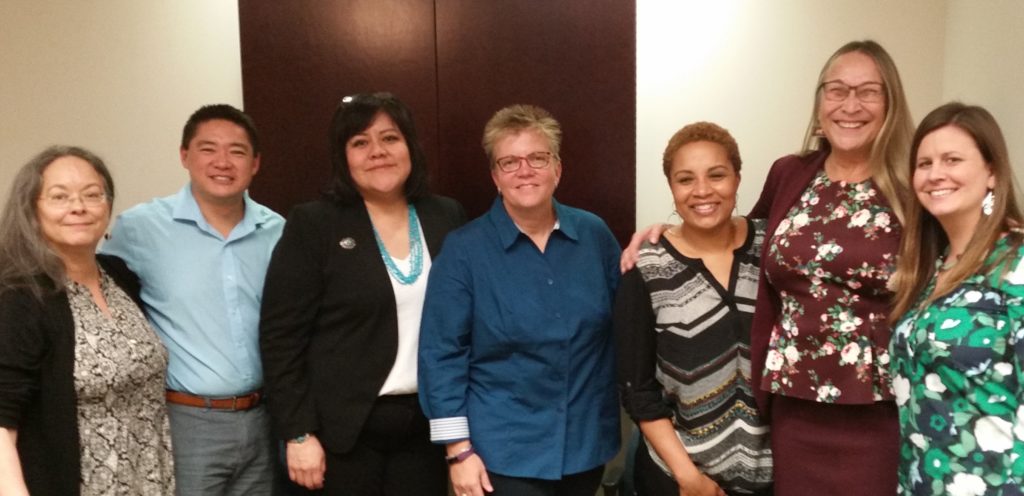
The National Indian Council on Aging (NICOA) is a member of both the Diverse Elders Coalition (DEC) and the Elder Equity Consortium. Both entities work to provide education and outreach to the Aging Network and other stakeholders. As a result of discussions initiated by Heather Chun of the National Asian Pacific Center on Aging (NAPCA) with Amy Gotwals and Rebecca Levine from the National Association of Area Agencies on Aging (n4a), our Consortium partners were invited to participate in a webinar series titled Serving Diverse Populations: Strengthening the Aging Network’s Cultural Competency. Not only did we appreciate this opportunity to speak directly with those providing care every day to our nation’s Elders, but also valued the guidance we received from fellow members of the DEC, including NAPCA and Services & Advocacy for GLBT Elders (SAGE).
To prepare for the webinars, we had calls with Amy and Rebecca to help guide us on expectations. We also viewed NAPCA presentations and listened to previous presentations from SAGE, the Jewish Federations of North America, Jewish Social Service Agency and Selfhelp, who work with Holocaust Survivors. This preparation helped to reinforce that every group has its own unique voice, and our intent was to reflect the American Indian/Alaska Native worldview.
Once our presentation was drafted, Sherrill Wayland, Manager of National Projects for SAGE’s National Resource Center on LGBT Aging (NRC) kindly introduced us to her colleague, Tim Johnston, SAGE’s Director of National Projects. Tim coached us on how to approach the topic of cultural competency, and offered to host a practice session with SAGE staff listening in to provide feedback. Tim handled the logistics and made sure there were no technical glitches, either with our sound quality or slide deck. It was wonderful to just focus on the delivery of the presentation, work through our issues, and improve our presentation with questions and insights from SAGE staff.
Our practice session ensured the webinar went smoothly and was enjoyable. The practical assistance we received from all our Consortium and DEC partners, especially SAGE, helped us to deliver a professional presentation. Now that we have been introduced to this valuable communication method we will continue to build our capacity to deliver presentations that reflect the Elders we represent.
After hosting the webinar, Johnston said, “It was a pleasure to work with NICOA as they drafted and launched their first cultural competency training webinar. The information was fascinating – I encourage anyone working with older adults to seek out their materials and resources.”
NICOA Executive Director Randella Bluehouse commented, “This project has reinforced how collaboration and partnerships with likeminded organizations can help create inroads for best practices in working with diverse communities, and how we can collectively educate stakeholders and policy makers about how to better serve all Elder Americans.”
“Working in collaboration with NICOA and other members of the Consortium and DEC provides the opportunity to explore the intersections of our diverse elder populations,” stated Wayland. It is through this work together that we recognize the common barriers as well as strengths that our communities experience.
The opinions expressed in this article are those of the author and do not necessarily reflect those of the Diverse Elders Coalition.

